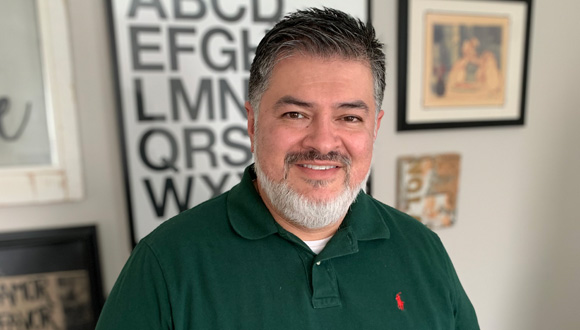Debilitating Fever, Isolation, Fear, Guilt: My "Mild" COVID-19 Case Felt Anything but Mild
Aug. 5, 2020 - Erik NoriegaI'm sharing my story because I had difficulty finding information on what I should expect once I'd learned I was positive. Yes, I found lists of symptoms, but no real example of what the experience would be like. I'll skip the drama and tell you that I lived. I was one of the fortunate 80% of people infected by the virus who had a "mild" case. But what does that mean?
It began with a slight tickle in my throat on July 9. Having suffered most of my life from allergies, this wasn't a big deal. Even when I felt slightly worse the next day, no flags were raised. But on July 11 around noon, I knew something was wrong. I had a fever of 101.5. I immediately quarantined myself to an extra bedroom and arranged a Houston Methodist Virtual Urgent Care visit. The physician I visited with ordered a COVID-19 test for me for the following Monday.
Immediately after learning I was positive, I began trying to read as much as I could about what I should expect. This virus is a true monster, and, as far as I can tell, doesn't affect anyone the same way.
So what was it like? I had a constant fever that wouldn't break, even with Tylenol. This made me uncomfortable 100% of the time. I was either cold and shivering or burning hot and sweaty. A few nights my chills were so severe and my teeth chattered so hard, my skull ached. About a week in I began to wonder if I'd ever feel healthy again as I could not remember what it felt like to not have a fever.
Most days my body hurt so badly I couldn't get comfortable in my bed or chair. My joints also hurt, to the point I struggled opening pill bottles.
I lost my sense of taste and ended up losing about 20 pounds in 11 days.
As miserable as I was (and this was, without a doubt, the most miserable I've ever been) mine was considered a "mild" case. I didn't develop any breathing issues or a cough. This was my major fear, as I have a long history battling sinus issues. This has led to dozens of sinus and upper respiratory tract infections and pneumonia twice.
As I searched to learn more about this virus, I kept coming across what I call "worst case scenario" stories — people much younger than me, in much better shape, who had no business dying of this — who did. I made the mistake of joining a support group for people who have or had COVID-19. Again, the group was just a warehouse of people's stories, each worse than the one before. Instead of providing me with any hope or comfort, it left me feeling hopeless. The news wasn't any better, reporting daily death tolls like lottery numbers.
Perhaps the hardest part of this experience was the extreme isolation I felt. Imagine being alone for two weeks after you've spent the last five months next to your wife's side as you both work from home. It was difficult to only be able to talk to her by phone or through the bedroom door. The absolute worst moment of this illness was the day that she broke down, worried that I wasn't getting better. It was very difficult to watch my wife worry like this.
Beyond the feeling of isolation was also fear. Was today the day I would start having trouble breathing? Would the virus begin to affect my lungs and other organs? If I had to go to the hospital, would I make it out alive? I literally counted the hours the first several days, assuming that every hour I was sick but not struggling for breath was a victory. I thought that at some point there'd be so many days and hours behind me that I surely wouldn't take a turn for the worse, right? Anything to make myself feel better. For the record, it was almost 11 full days before hope found me again.
A strange companion to my fear has been guilt. In the time that I was sick, and since then, I've read multiple stories of people dying of COVID-19. At a certain point you begin to wonder why did that person die and why am I alive? Like everything else in life, it's a mystery. But the randomness of a virus that ends someone else's life but let's you live will weigh heavily on your soul — for at least a little while. It is certainly something I think about and will continue to think about.
The best thing I probably did the entire time I was sick was a virtual visit with my primary care physician. I told him about my fears, and he recommended I stop reading the news and stop following social media. Then he said to me, "Remember, no one wants to read a story about guy who was sick for a few weeks and made a full recovery. But that's what mostly happens." And it did.
As the days pass, I see more and more people deciding to just start living their lives again. I get it. It's tough to stay home. But understand that you may be gambling with your life and maybe that of your family's — especially if you choose to not wear a mask and socially distance.
This virus took me on a two-week trip through hell that I wouldn't wish on my worst enemy. It has left its mark on me forever, even as I'm now counted as someone who's recovered. You do not want to catch this bug and you certainly don't want to spread it to a loved one — even a "mild" case of it. It may not be as "kind" to you as it was to me.


